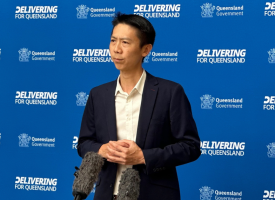Expanded 1800 Medicare service must be GP-led and properly evaluated
The Australian Medical Association says patients regular GPs must be strongly involved in the proposed expansion of the 1800 Medicare service announced by the Labor Party.

AMA President Dr Danielle McMullen said the involvement of a patient’s regular GP in the expansion would be critical to ensure the expanded service genuinely improves access to care.
“This service has to be part of an integrated GP-led model of primary care, otherwise it runs the danger of undermining the role of the patient’s usual GP and fragmenting care,” Dr McMullen said.
“1800 Medicare should not be seen as a substitute for care by a patient’s usual GP and wherever possible should link patients back to their usual GP or if that is not possible, other local GPs,” she said.
“Strong systems must be in place to ensure good communication with a patient’s usual GP through the provision of timely clinical handover.
“GPs need to be supported to participate in programs like 1800 Medicare. The success of primary care relies on general practice and their involvement requires appropriate engagement in system design and support for implementation.”
The service would also need to be properly evaluated, Dr McMullen said.
“There has been enormous growth in call centre and online triage services over the recent years.
While these services can be a useful part of an integrated GP out-of-hours service model, it is not a substitute for accessing high quality GP after-hours services.
“If Labor is re-elected, the AMA will firmly advocate for the government and the Department of Health and Aged Care to ensure that this service is effective for patients and complements the role of general practice as part of an integrated approach,” she said.
“While efforts to improve access to healthcare are welcome, there’s a very real danger of further fragmentation of the health system, with policies that don’t ultimately address the core issues with the Medicare system — including the rebate structure.
“We expect much of the investment to date, including the $8.5 billion committed in the budget to make some short-term difference, but structural reform of Medicare rebates is needed to ensure today’s patients get the care they need.
"We are continuing to call for a new seven-tier general practice consultation item structure that is designed to meet the challenges of the growing burden of complex and chronic disease — one that supports patients to spend more time with their GP as part of a comprehensive approach to care.”



